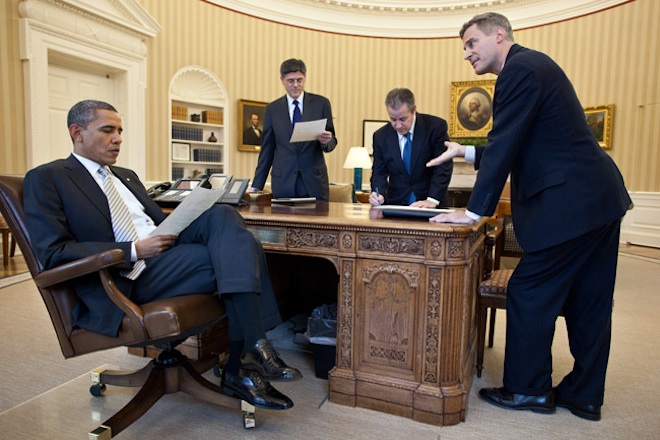President Obama launches an effort Monday to extend the Bush-era tax cuts for one year for people making less than $250,000, and end them on marginal incomes above that level. The push serves to honor a key campaign promise that he has yet to fulfill, and highlights an important contrast with Mitt Romney four months away from Election Day.
It also dredges up the ongoing war over the Bush tax cuts on Capitol Hill, where Republicans have so far outgunned Obama and the Democrats.
In 2008, Candidate Obama pledged to end the lower tax rates on the rich. In 2010, despite large Democratic majorities, he failed to follow through. Later, after sweeping the November midterms, Republicans blocked attempts to keep lower rates for the middle class unless the wealthy also got an extension. Spooked by their defeat, Democrats folded and extended all the rates for two years. In return, Republicans agreed to a year-long payroll tax holiday and to another year of extended unemployment benefits.
This time around, the White House has emphatically insisted that Obama won’t back down. His senior campaign adviser Robert Gibbs said Sunday on CNN’s “State of the Union” that the president is “100 percent committed” to returning the marginal tax rates on high earners to Clinton-era levels, an increase from 36 percent to 39.6 percent. Under Obama’s plan, even the rich will pay lower rates on the first $250,000 they earn.
The president will seek a standalone one-year extension of the middle class rates. The upshot is largely political because it’s taken as a given that Republicans on Capitol Hill have no intention of letting that happen. Apart from that, the Bush tax cuts are one of several issues — including large automatic spending cuts and expiration of the payroll tax cut, unemployment benefits and Medicare reimbursement rates — arising from last year’s debt deal that will likely be dealt with as a comprehensive package after the election to avoid a major economic contraction.
Republicans are already highlighting the fact that Sen. Chuck Schumer (D-NY) and House Minority Leader Nancy Pelosi (D-CA) have backed extensions of the tax cuts for a larger segment of wage earners: those with incomes under $1 million. Leadership Democrats are trying to deflect that argument.
“Very funny. Are those the same Republicans who opposed our budgets that included 250k? Are those the same Republicans who opposed extension to those earning a million and below?” a senior House Democratic aide told TPM. “Give me a break. This is the gang that is wedded to tax cuts for the rich. [Pelosi] said she’ll support 250 or a million. Let’s just get it done.”
In other words, even if the Democratic rank and file are divided, Democratic leaders will not be.
The chances of a legislative resolution before the election are virtually nil. For now, the debate serves to brighten distinctions between the parties. Republicans will respond by painting Democrats as tax-hikers and obscuring the fact that the higher rates will only be paid by a small fraction of people.
“President Obama’s response to even more bad economic news is a massive tax increase,” said Romney spokeswoman Andrea Saul. “It just proves again that the President doesn’t have a clue how to get America working again and help the middle class.”






